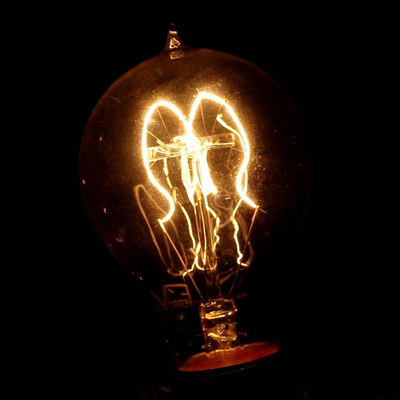So there’s been some media stuff about Tesla chargers going down or getting long lines in this extreme cold we’re having.
The factors there are complicated and mostly this is impacting people without charging at-home. As it happens, I’m now making a daily commute - just started in fact! And I’d like to report that my car is having no issues at all in this weather, and I haven’t even plugged it in to charge in a few days.
@[email protected]
EVs have 2 batteries, a “12 volt” aux battery to run the lights and cabin stuff and the traction battery.My first thought was that there was a rash of cold weather forced 12 volt battery failures. They are needed to line up the HV system for charging. I hope there is follow up on this story.
Early teslas have lead acid aux batteries. Newer Teslas have lithium aux batteries.
@[email protected] The IONIQ 5 is a wonderful winter car. It’s super popular around here in Quebec. Still 2+ year wait to get one.
We get cold weather regularly up here BTW. Doesn’t affect Superchargers, or our local CCS charging provider in meaningful ways. Circuit Electrique just knows how to handle it. No worries!
@[email protected] yeah it’s the infrastructure for the most part and people not really knowing about EVs in cold weather shortcomings.
@[email protected] What sort of temperatures are we talking about there? I’ve been watching some of Bjørn Nyland’s videos and he doesn’t seem to have had many issues charging EVs at as low as -25C.
@[email protected] Well maybe Teslas are only good for one thing then. https://youtube.com/shorts/dk4jPpI2kjE
@[email protected] I have a fuzzy memory that Tesla chargers used to lock on when they were plugged into a car, but that turned out to be a bad idea because people would break the plug trying to disconnect it before the car was ready.
@[email protected] No they absolutely still lock to the car - it would be incredibly dangerous if they didn’t as you could disconnect a several-hundred-amps DC connection.
The dispensers, though, barely retain them when they are put back in the holder. It’s essentially a friction fit.
This evening I’ll make a quick little Connextras video about this, I think. What exactly the issue is with the Tesla chargers is unclear, though I’m seeing reports that charge handles are plugging with ice - which seems reasonable. The worst aspect of Tesla’s charger design is how poorly they retain the handle - it falls out easily and can end up face-down in snow. That needs improvement, and perhaps a heated connector makes sense in this climate.
Growing pains are real, but this is mostly FUD*
@[email protected] I can’t wait for the first “Well, i thought I should pour hot water over it to thaw it” reports to come in… 😳
The reports better be either nothing happened, or the charger now works. Chargers need to work when it is raining. If pouring hot water on them causes any problems then all Tesla chargers should immediately be blocked off (not just shut off, physical access removed) as they cannot be trusted when it rains.
@[email protected] I’ve definitely ran across my fair share of Tesla charger plugs that will not properly hang back up. It’s a very stupid design they have.
@[email protected] Yeah, it seems like the only retention mechanism is friction? Which… WTF.
Honestly there’s a lot about their charger design to not like. The connector itself? Great!
The way the dispenser holds it? The location of where it holds it? The cable length? All bad.
@[email protected] Yeah I’ve had many a connector just plop right down onto the ground when putting it back. You have to get it juuuuuuuust right. It was definitely a learning curve when I first got the car.
@[email protected] I don’t think the issue is with the chargers, it’s with the batteries. Batteries discharge more quickly (well less efficiently) in the cold, and they recharge more slowly in the cold. The theory is you can precondition the battery, to warm it up to make charging more efficient, but that requires further discharge which may be difficult if you’re already on a low battery.
https://www.theregister.com/2024/01/16/tesla_owners_in_deep_freeze
@[email protected] That’s an interesting supposition you’ve got there, except in this instance near Chicago multiple chargers have indeed gone down. At least one charging site went entirely offline.
@[email protected] Ice is a pain with everything. I couldn’t unlock a (gas powered) car door yesterday because the keyhole had frozen.
@[email protected] I bought a spray can of windshield deicer to solve the problem of icy EV power connectors in New England. It would be nice if the handles were heated.
@[email protected]
Btw, maybe I’ve asked it before, but why don’t you use the ‘channels’ feature on yt channels. I’ve seen channels that have a ‘channels’ tab right here where they list their second channel.
(I know that the second channel is linked in the ‘links’ section already. But yeah)@[email protected] good news: the v4 pedestals, and the magic dock equipped v3 ones, add positive retention on the pillars.
Now we just need to work on the users who don’t put them back.
@[email protected] I mean, it shouldn’t be the technology, right? Tell me if I’ve slept through that part of physics class, but lower temperatures should be better for charging!
@[email protected] Well… for cables, sure. For the battery? Absolutely not. Cold temps wreck battery charging performance which is why most EVs have some means to warm up the cells. Nearly all have had this to keep the battery above some minimum threshold, but newer cars work to heat the battery pack to properly warm temps en-route to a fast charger (called battery preconditioning) which greatly reduces charging time.
@[email protected] oh, yup. I’ve clearly slept through chemistry class, then! Thanks for explaining :ablobcatheartsqueeze:
*I apologize for using that term but it’s true.
More AC charging everywhere is what we need - relying on DC chargers for your daily needs is just not good for lots of reasons.
That said, they need to be designed better so that this isn’t an issue.
@[email protected] businesses need much more incentives to offer at work charging. As someone who lives in a condo, and has little to no chance of ever getting the building to put in a charger, I can see how this is going to be a huge issue. While we absolutely need a nationwide charging network of charging stations, it’s only one piece of the puzzle.
@[email protected] a couple of weeks ago a big highway in southern Sweden was backed up for 30km. Some bevs and ice vehicles failed miserably but that was not because of the propulsion but lack of fuel.
If you have a short drive home you might not fuel up before doing that and let’s be honest, who plans on being stuck and snowed in for 24 hours.
Spoiler alert, some fud-spreading people say bevs are crap because of this
@[email protected] this perplexed me too and initially I thought these people stuck at chargers had their battery unexpectedly depleted while at work or something. But apparently owning an EV without a place to charge at home is a thing some people are doing?
I don’t own an EV yet, but it seems likely I will in the near future. My ability to use it for trips depends on charging infrastructure.
@[email protected] Yes, a surprising number of folks are doing this. I frankly don’t understand it but at the same time, it’s a way to make demand happen for more charging in more places I guess.
I essentially don’t use public charging at all unless I have a surprise need to make a longer trip. That has happened three times in two years for me - otherwise I’m only ever plugging in at home.
@[email protected] I’m still firmly in the camp of “more basic L2 AC charging in more places” but it’s also true that for folks like myself, I just… never need that.
It’s mainly renters and folks who use street parking who need it, which presents quite the chicken-and-egg problem. So honestly, good on the folks making it work without at-home charging. I just hope they understood the experience they’re signing up for and don’t become loudly upset.
@[email protected] @[email protected]
Think about it from the standpoint of someone coming from exclusively ICE cars. Needing to refuel away from home is what they’re used to, so not being able to charge at home is normal for them. They may find the wider range of places that offer chargers- many employers have dedicated EV charging spaces now, for instance- to be nice, even if they don’t have the full convenience of charging at home.@[email protected] I’m going EV in March and yeah, the “full tank every day” is like…a huge draw to making the switch. If I couldn’t charge at home I wouldn’t even consider it
@[email protected] @[email protected] A very large segment of Tesla drivers are Rideshare, who probably don’t have the means to install a Level 2 charger where they live.
@[email protected] I’m tired of the FUD. My mom seems to think that every EV is going to burst into flames…
@[email protected] agree, I manage to charge 37kWh in 8 hours on 240V 12A (at home)
during off peak which costs next to nothing
@[email protected] I think we need to both home charging and work place charging. The 8-9 hours we spend at the work place is also perfect time to AC charge our cars. It has other bottlenecks (not enough power provisioned by utilities, managing the queue of cars for small number of EVSE, etc.) but they are solvable problems.
@[email protected] Absolutely! That’s what I mean by more AC charging everywhere.
@[email protected] The NACS plug does both, but high-power charging isn’t necessary for most people, especially if we can make public chargers so ubiquitous you can charge a bit as you run errands (or charge at work). Fast charging isn’t great for batteries anyway.
As I write this, I think governments should do much more to encourage workplace charging. That has to be easier and cheaper to set up than individual home charging, particularly for renters.
@[email protected] @[email protected] The problem there is that the NACS plug doesn’t do the 3rd option that Combo/CCS 2 does: 3-phase AC for that sort of medium power charging while shopping for a bit.
@[email protected] @[email protected] Sure, but there are 50kW DC chargers out there. Heck, there’s really no reason you couldn’t have a 25 kW DC charger.
I’d argue it doesn’t make sense to equip every EV with a more expensive onboard charger which can handle large AC inputs - most people truly don’t need that ever.
The need for medium-speed charging is, frankly, rare in the grand scheme. And it’s much more sensible to fill that need with DC chargers in places where they’re appropriate.
@[email protected] My local Costco has just installed 3 new 24 kW CCS chargers to replace janky level 2 Semaconnect crappy ones. Truly wonderful! $2.50 Canadian per hour, my IONIQ 5 AWD gains 30% charge in the time it takes to shop through the store. Way better than level 2!
@[email protected] The problem with AC chargers is that you need to be on them for a lot longer. Here in Europe, the general trend is additional time based fees if you are connected for more than say 4 hours, to encourage people to move. The 4h limit is not nearly enough time to fill up most batteries, and basically prevents overnight charging.
@[email protected] I wonder if the people who got stranded in the cold think it’s all FUD
It’s not a non-issue. EVs still tear up roads, drive into telephone poles, signs, fences and houses, and kill people.
Their promise was, “Well, at least they don’t burn oil.” But it turns out they can’t even do that well.
Please stop defending them and encourage people to support scalable mass transit and bicycles instead.
You may think that, “That doesn’t sell views.” but some other channels don’t agree…
@[email protected] I’m sorry but I don’t have patience for this attitude whatsoever.
Our built world is incredibly car-centric. This is bad! I’m on record as saying that. But we’re not gonna be tearing it down any time soon, and progress on more mass transit and even bike infrastructure is frustratingly slow. Much too slow to have the impacts we need now.
I frankly find it insulting that you presume I don’t also want more mass transit and bike infrastructure.
@[email protected] This is quintessential black-and-white thinking at its very worst.
I need a car and will need one for the foreseeable future. Many people are in the same boat.
Getting mad at folks who advocate for harm reduction given the realities of the day as some sort of purity test is not how you win over folks. You’ll probably make some extremists happy, maybe even radicalize a few folks to your position.
But this sort of purity-testing nonsense never leads to great places.
@[email protected] Calm down. All I asked was that you don’t defend them.
@[email protected] … oh right, all you asked was for me to not make content illustrating that so much of the bad press out there isn’t real.
What to you actually want, a reduction in climate emissions as fast as possible? Or should we all just keep buying gas-powered cars while our politicians twiddle their thumbs and NIMBYs do their best to block even the most meager of proposals?
@[email protected] First of all, you have no evidence that the story wasn’t true. Second, the difference between everyone using gas or electric is very small, especially when you consider tire and brake residue.
But you jump to the defense of the EV anyways, even making a buck off the video.
All I’m saying is that EVs don’t deserve it. Spend your time and energy on something else please.
@[email protected] Did I suggest that story’s not true? Is this a Mastodon threading thing?
Or are you really just… extremely anti-EV?
I can’t tell, but either way - your suggestion has been noted but, I should warn you, will be ignored.
@[email protected] I suspect that you’re mixing up respondents. You /did/ say, “…that so much of the bad press out there isn’t real.” I never mentioned the press.
@[email protected] What, specifically, are you telling me I should be defending against, then?
I’m so fucking confused.
@[email protected] there’s been a decent amount of federal money flowing into local projects to install more fast chargers, but with what they cost I wonder if we’d be better off showering places with tons of cheap Level 2 chargers.
It’s a huge problem if there’s contention for a handful of fast-charging spots, but if you know wherever you go there will be a spot that can charge your car over the course of several hours, that would be a huge help day-to-day for those without a home charger.



























